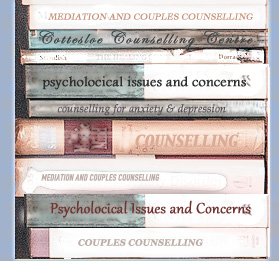A miscarriage is a significant loss for a couple, particularly as it is commonly unexpected, thereby causing shock, trauma and loss. These are all issues difficult to deal with individually, and as a couple. Each partner might react differently to the loss, and find it difficult to know how to share their grief.
Grief is a personal process, we all grieve differently and there is no ‘right or wrong’ in how we grieve. Some people experiencing loss might want to share their feelings with their partner, family and close friends. Others may withdraw and require solitude to grieve in private, at their own pace. This can leave their partner feeling neglected or abandoned in their time of loss. This different way of handling grief can lead to feelings of anger and resentment between a couple, and result in disconnection. Over time that disconnection can increase, to the point where a couple stop communicating and retreat further away from each other, not knowing how to find their way back to each other.
Miscarriages are sadly common, one in 5 pregnancies ends in a miscarriage before 20 weeks. They are often unexplained, with many women who miscarry blaming themselves, believing there’s something they could have done to prevent it such as following a better diet, not having that glass of wine, or exercising less or more. This is a normal reaction to a miscarriage, and self-blame can result in women feeling unworthy, guilty and helpless. These feelings can build, until they become overwhelming. If their partner is experiencing the loss very differently, for example sees it as ‘just one of those things’, they may find it difficult to understand their partner’s self-blame. This in turn can create distance between a couple, with neither feeling understood, and possibly very alone in their loss. It is important to find a way past the blame, to realise that it is beyond anyone’s control.
Often after miscarriage couples may feel anxious about conceiving again, or carrying to term in the future. One partner may be less willing to try again, for fear of another miscarriage, while the other partner might be keen to start trying as soon as is medically recommended (usually 3 months after the miscarriage). This difference in stance can lead to feelings of being misunderstood, impact on a couple’s sexual intimacy, which may create conflict and disconnection.
Some couples may find it difficult to express their grief, minimising that ‘it was only a foetus’ and thinking they’re overreacting. Loss of life is significant, particularly for prospective parents of an unborn child.
The above are all normal and common reactions to miscarriage. Over time people do come to terms with those feelings of loss.
Dealing with Disconnection
It’s important for couples to communicate and show understanding when it comes to any challenging situations in a relationship. In the case of a miscarriage, this is particularly important.
In the aftermath of a truly traumatic event like this, there’s a very real risk of becoming disconnected and drifting apart. Emotional patterns that might otherwise have only caused minor friction in a relationship can suddenly create massive rifts. Although it’s hard, it’s important to remember to look after yourselves as a couple, as well as individuals.
Most of this is simply down to letting each other know how you’re doing, what you’re currently feeling and thinking – and then listening as the other person does the same. If you notice that it’s more difficult for your partner to express their feelings, try to be gently curious. They may be finding it hard to put their feelings into words.
Of course, this can be more difficult for the partner who most wants to withdraw – and it can be particularly important to be patient and understanding if this is the case. Try to make time to check in with each other, even if this just means acknowledging that you aren’t ready to talk yet. This can be a critical element in maintaining your connection and, as time goes on, feeling that you are dealing with this as a couple.
Seeking Help
You may also find it helpful to talk to a counsellor about what’s going on. They will have been trained to help in situations like this and understand how miscarriages can create instability in a relationship.

